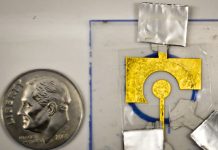
If you’re a dog lover, especially of Golden Retrievers, you might find this piece of news quite important.
A recent scientific study is pointing to a possible connection between when dogs are spayed or neutered and their risk of getting a serious type of cancer called hemangiosarcoma.
This isn’t the first time researchers have thought there might be a link, but it’s still something that’s not very well understood.
Let’s break down what the study found.
It looks like for Golden Retrievers, the chances of getting this cancer are pretty low for all dogs up until they’re about eight years old. After that age, it gets interesting.
Male dogs, whether they’ve been neutered or not, start to face similar risks of this cancer.
But for female dogs, it’s a bit different. Those that haven’t been spayed tend to have a lower chance of getting the disease compared to those that have been spayed.
Hemangiosarcoma isn’t just any cancer; it’s the most common one seen in the dogs who were part of this big study called the Golden Retriever Lifetime Study.
This cancer is a nasty one—about 90% of dogs diagnosed with it will sadly die within a year, even if they get strong treatments. Very few live past two years after finding out they have it.
A scientist named Dr. Alison Hillman who worked on this study says that there’s still a lot more digging to do. They want to understand this potential link between spaying/neutering and cancer better.
She thinks that studying older dogs even more could help. Dr. Hillman also points out that studying this in dogs might help humans, too. Since hemangiosarcoma is rare in people, it’s tough to study.
But dogs and humans have a lot of similarities in how this cancer acts and in their genes, more than between humans and other animals like mice.
The good news is that all the information that researchers used comes from a place that’s open for others to explore, called the Morris Animal Foundation’s Data Commons.
Kathy Tietje, from the foundation, says this study isn’t just helpful on its own.
It can be a starting point for other scientists to come up with new ideas and research designs. She thinks it shows just how valuable the Golden Retriever Lifetime Study can be for experts who are really into this area of study.
So, what does this all mean for you and your furry friend? It’s not saying that spaying or neutering your dog will definitely cause cancer.
But it does suggest that it’s a topic worth paying attention to, especially as your dog gets older.
And for the science world, it’s a reminder that our canine companions aren’t just great friends—they can also teach us a lot about health, for both dogs and humans.
Follow us on Twitter for more articles about this topic.



